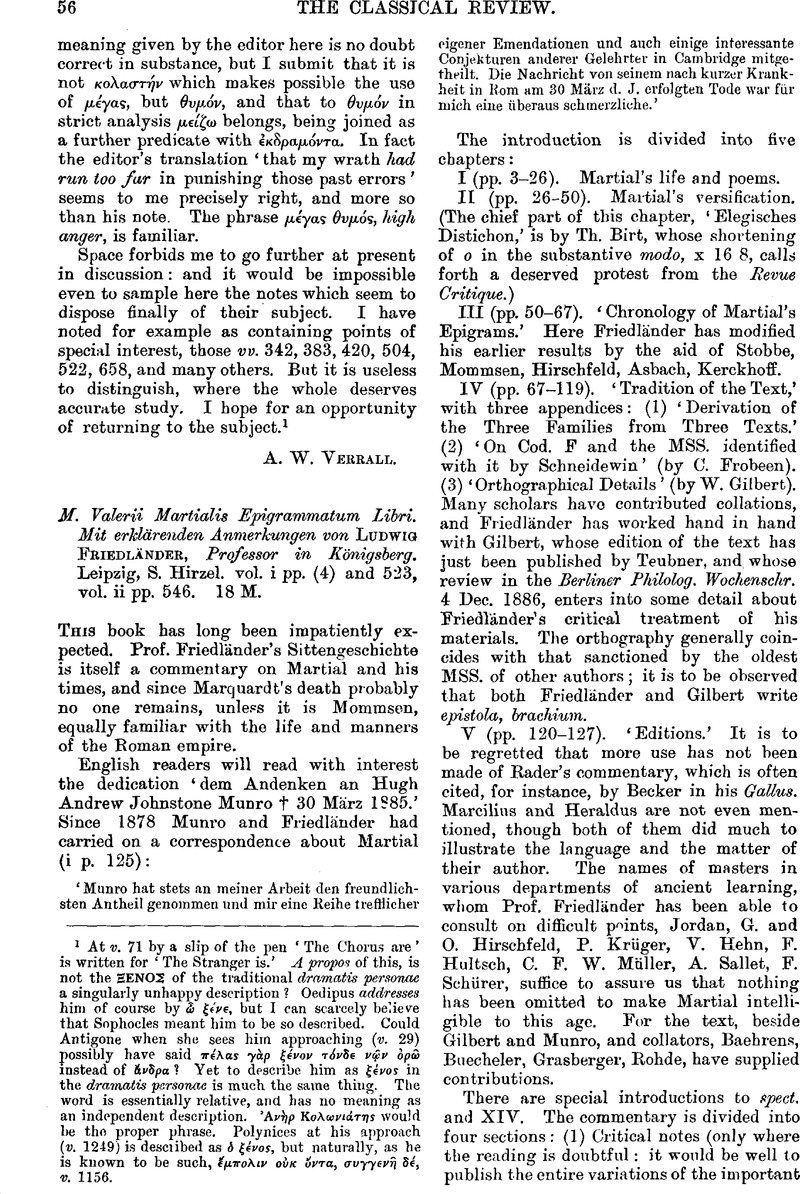No CrossRef data available.
Article contents
M. Valerii Martialis Epigrammatum Libri. Mit erklärenden Anmerhungen vonLudwig Friedländer, Professor in Königsberg. Leipzig, S. Hirzel. vol. i pp. (4) and 523, vol. ii pp. 546. 18 M.
Published online by Cambridge University Press: 27 October 2009
Abstract

- Type
- Reviews
- Information
- Copyright
- Copyright © The Classical Association 1887
References
page 54 note 1 At v. 71 by a slip of the pen ‘The Chorus are’ is written for ‘The Stranger is.’ A propos of this, is not the ΞHENOΣ of the traditional dramatis personae a singularly unhappy description ? Oedipus addresses him of course by ὦ ξνε, but I can scarcely believe that Sophocles meant him to be so described. Could Antigone when she sees him approaching (v. 29) possibly have said πλας γρ ξνον τνδε νῷν ρ instead of ἄνδρα ? Yet to describe him as ξνος in the dramatis personae is much the same thing. The word is essentially relative, and has no meaning as an independent description. ’ Aνρ Κολωνιτης would be the proper phrase. Polynices at his approach (υ. 1249) is desciibed as ξνος, but naturally, as he is known to be such, ἔμπολιν οὐκ ντα συγγεν δ υ. 1156.


